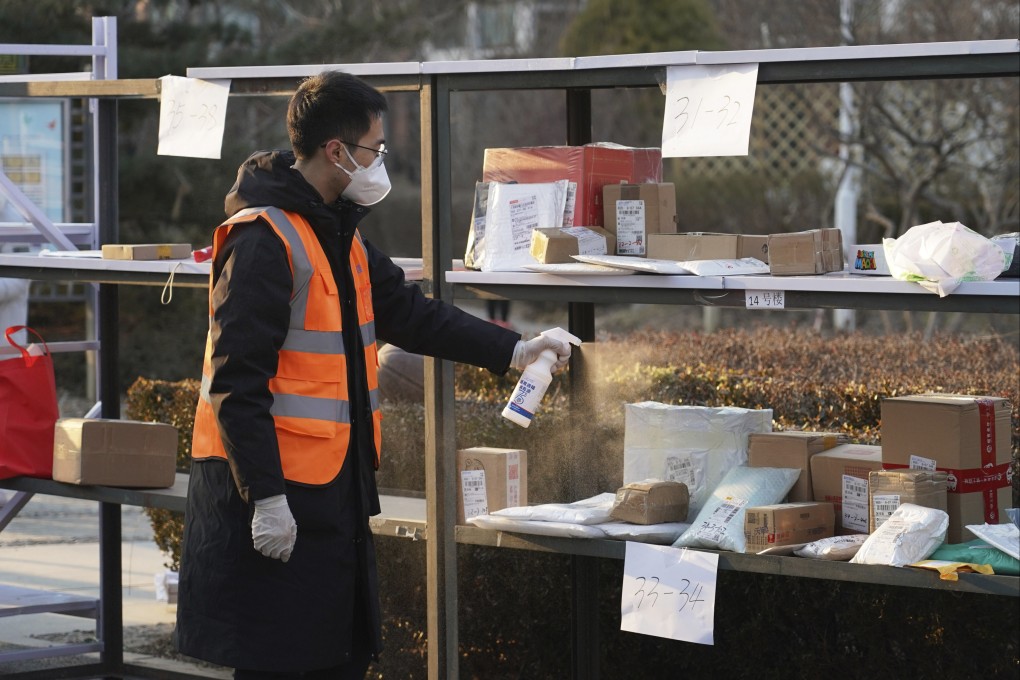Advertisement
Coronavirus: Beijing records 5 new infections as Winter Games loom
- Cases are all people who work in cold storage and all are being treated in hospital, according to health authorities
- Officials in the city have meanwhile been told to be alert to the risk of Covid-19 spreading from inanimate objects
Reading Time:3 minutes
Why you can trust SCMP
15

Beijing health authorities reported five new locally acquired Covid-19 cases on Wednesday, as the city prepares to host the Winter Olympics in just over two weeks.
The new infections, identified as the Delta variant, were found in the Fangshan and Fengtai districts and bring the total cases to nine in the latest outbreak.
It comes as officials in the Chinese capital have been ordered to be alert to the risk of Covid-19 spreading from inanimate objects after a controversial claim that a woman may have been infected by mail sent from Canada.
Advertisement
Beijing has imposed tough measures as it tries to keep Covid-19 at bay during the Games, including holding the event in a “closed loop” bubble to keep athletes and other participants separate from the public.
Health officials told reporters at an evening briefing that the five new cases work in cold storage and all are being treated in hospital.
Advertisement
The first case in the outbreak was reported on Saturday and identified as the highly infectious Omicron variant, with three more infections found in compulsory mass testing early this week.
Advertisement
Select Voice
Choose your listening speed
Get through articles 2x faster
1.25x
250 WPM
Slow
Average
Fast
1.25x